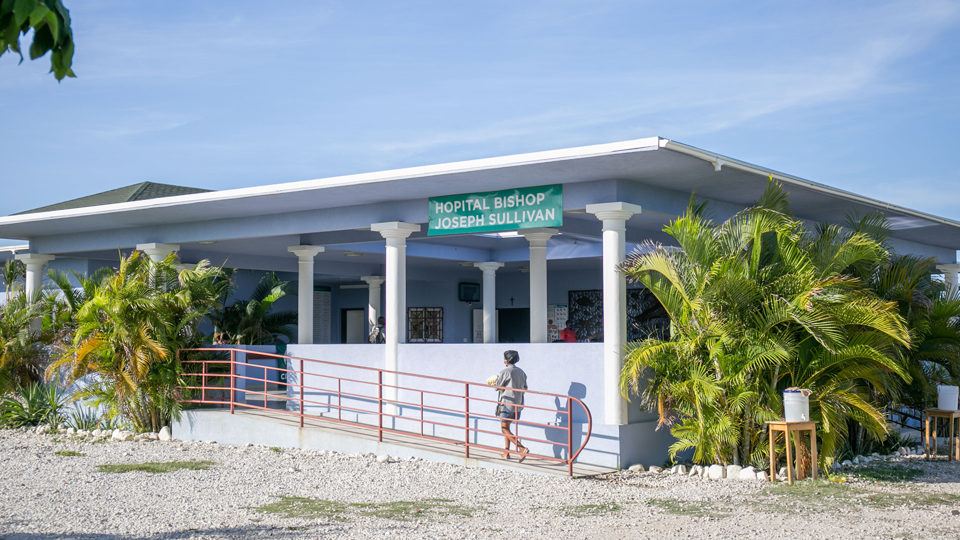Lifesaving Care at Bishop Joseph Sullivan Hospital

Lovely, a 23-year-old living in Côtes-de-Fer, Haiti, was speechless when she learned she was expecting twins. As her physician at the Bishop Joseph Sullivan Hospital, I could tell Lovely was concerned about risks associated with her pregnancy, and about her babies. But she was full of joy at the same time. Côtes-de-Fer is a rural area.
Bishop Joseph Sullivan Hospital is the main health facility that can offer skilled pregnancy and delivery care. Lovely followed antenatal care consultations regularly at Bishop Joseph Sullivan Hospital. Through her regular visits, she learned that her blood pressure was high. At 31 weeks, her pregnancy became complicated. She developed generalized oedema, proteinuria, and seizures—all potentially life-threatening complications during pregnancy. The decision was then made by the team to deliver the twins by c-section. The lives of Lovely and her babies depended on quick action.
Lovely received steroid injections to help with the twin girls’ lungs maturation. Finally, the c-section was done, and the babies were born. Lovemia, the first to be welcomed, weighed 2lb 8 oz. Lovemicka, the second baby, weighed 3lb 2oz. and seemed more stable than her sister. Both newborns were admitted to the neonatology ward for prematurity and low birth weight.
Lovemia and Lovemicka were extremely fragile, and the nurses had to be very careful during the first week to avoid any neonatal infection and to prevent other complications. Both babies needed sufficient heat to help them gain weight. They were placed next to each other under a heating lamp. The team also encouraged kangaroo mother care, which involves skin-to-skin contact between mother and newborn to help regulate a baby’s temperature and enable bonding. The twins were little fighters, and the team was surprised but overwhelmed with joy by their progress. Both newborns had jaundice and received treatment.
During their first 15 days of life, the little girls were fed through feeding tubes. This situation was stressful for the parents, their family, and our NICU team. But at the end of the third week, they were able to successfully start oral feeding during the kangaroo sessions with their mother. Progressively, the twins became less dependent on oxygen and more alert. At the end of the fourth week, they completely came off oxygen and began breastfeeding. On their 36th day of life, they had improved enough to finally go home.
This story illustrates just one of the many successes we have had at Bishop Joseph Sullivan Hospital caring for premature babies. I continue to care for the joyful twin girls as their doctor for regular consultations. At the hospital, they are our little stars. They love singing and dancing. The girls remain our little patients and the hospital continues to provide them with quality healthcare.
CMMB Haiti helped construct the Bishop Joseph Sullivan Hospital in 2017. Our support continues ever as strong today thanks to the commitment of our community of donors and partners.